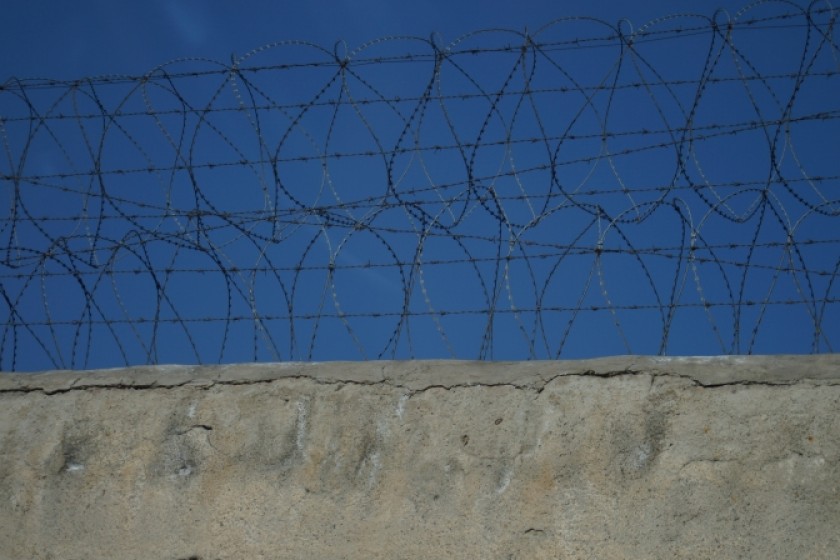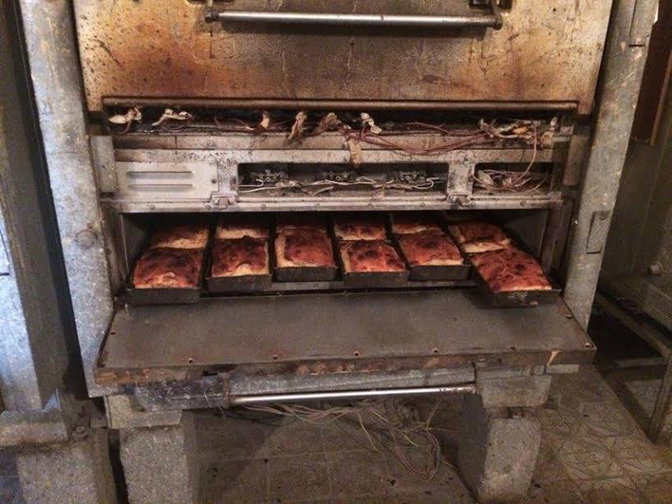
State Secret? Armenian Prison Officials Refuse to Say Where Unconsumed Food is Going
Grisha Balasanyan, Zaruhi Mejlumyan
Over the past few months, the Investigative Journalists NGO (IJ) has been unable to find out where thousands of dollars of bread and other comestibles, produced by convicts in Armenia’s prisons but not consumed within the corrections’ system, has wound up.
Armenia’s Department of Corrections and the Ministry of Justice consistently avoided answering such questions.
Readers might be surprised to learn of such a practice in Armenia’s prisons, designed as job training leading to rehabilitation.
Due to the government’s reluctance to provide answers, the IJ was forced to file a freedom of information request in the courts.
In many cases, the bread prepared in various prisons is of such poor quality that convicts refuse to eat it. Prison food is so bad, that the long-established tradition is for relatives to bring food from the outside to friends and family serving time behind bars.

In 2016, Department of Corrections’ official Hayk Kochinyan told Hetq that the unconsumed food was simply thrown into the sewers.
Another widely-held rumor is that the food is used to feed the swine owned by prison staffers.
Rouben Sargsyan, a member of the Civilian Monitoring Group, says that he once saw unused food being dumped into special vats for use as pig feed.
Former convict Aram Davtyan says that prison food is deliberately produced badly so that inmates don’t eat it. Davtyan singled out Noubarashen Penitentiary in this regard.
“We could have prepared better food if they had given us the foodstuffs,” he told Hetq, adding that the waste was carted out, but he couldn’t say where.
Some of the people IJ talked to said the waste was transported to local garbage dumps. Others said that the waste is never transported out of the prisons, but had no clue what became of it.
According to kitchen workers at various prisons interviewed by the Civilian Monitoring Group, up to 60% of convicts at the Noubarashen Penitentiary refuse to eat the prepared food. 8% of convicts at the Goris Penitentiary shy away from prison food.
Officials noted 2015 changes, designed to curtail the water, made to prison regulations. Convicts who refuse to eat prison food are now required to sign a notice one day in advance, so that the kitchen staff will not prepare meals for that convict.
At first, the Department of Corrections refused to hand over copies of these journals, citing personal data secrecy. IJ then requested to see the journals on site, and if necessary, to photograph them. The request was denied.
Instead, officials promised to provide IJ with a few pages of a list of convicts who refused to partake of prison menus at the Hrazdan and Vardashen Penitentiaries. The documents they handed over were incomprehensible.
Artak Manoukyan, who’s studied state expenditures in Armenia for the past decade, says that taxpayers must know if their money is being spent responsibly and that the government, if it wishes, can expose corruption within the penal system.
Artak Manoukyan
“For example, a document says that fruit has been purchased, but this alone isn’t proof that it’s been distributed to the inmates. Then we see another document, with the same signature, alleging that the fruit was shipped and received at a prison. This also raises red flags. Officials argue that oftentimes inmates don’t want to sign a document that they received food and that, in such cases, the kitchen director is the one who signs. This too is suspicious,” says Manoukyan, adding that taxpayers in Armenia have not gotten used to demanding financial accountability.
Many legal activists in Armenia believe that’s in the interest of the corrections’ system to keep the prisons overcrowded.
They say that the greater the prison population, the more money is pumped into the system for food, clothing and other necessities.
As we all know, as the flow of money increases, so too do corruption risks.
 Videos
Videos Photos
Photos




Comments (4)
Write a comment